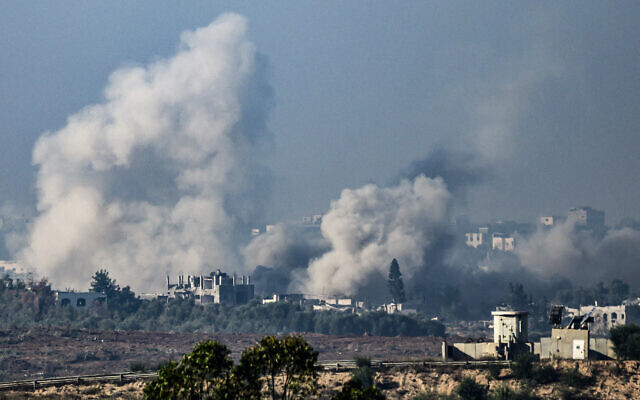
[ad_1]
After an all too brief weeklong cease-fire in Gaza, the conflict resumed on Friday, Dec. 1. The cease-fire was extended from four days to a week after tireless negotiations to keep it extended.
The cease-fire agreement was based on an exchange of Palestinian prisoners held by Israel for the hostages recently taken by Hamas, and 100 humanitarian aid trucks would be delivered to Gaza each day of the truce. The hostages for prisoners were released in batches, and before the conflict resumed, about 102 Israeli hostages were released, while 210 Palestinian prisoners were released, with most of the Palestinian prisoners being younger than 18.
There are still 140 Israeli hostages, and it’s uncertain what will happen to them now the conflict has resumed.
Israel claims they are ending the cease-fire because of reported rocket attacks into Israel supposedly fired by Hamas and because Hamas refused to release more hostages. There was also an attack in Jerusalem by two Palestinian gunmen, which killed three people on Thursday, Nov. 30, which Israel believes was an attack by Hamas.
While Hamas and Israel have gone back and forth on who to blame for violating the cease-fire agreement, the U.S. remains staunchly on the side of Israel and their claims Hamas was the one to break the truce.
Secretary of State Anthony Blinken has ardently supported Israel since the conflict resumed and has also blamed Hamas for the attack.
Israel has continued their policy of dropping leaflets with information about supposedly safe zones for civilians to move to, and these leaflets have extended to the southern end of Gaza, which indicates the expansion of the conflict from the north. As Israel tells civilians to move for their safety, it begs the question of where Palestinians are supposed to move to as the conflict comes to every part of the territory, which is only 25 miles long and 3.7 to 7.5 miles wide.
Egypt is also not accepting Palestinian refugees, so it’s incredibly unclear what safe areas there are for civilians in Gaza to go to.
Aid to Gaza has also virtually stopped as the Rafah checkpoint on the Egyptian/Palestinian border has been closed since the bombings continued, and this point was where the vast majority of aid to Gaza was coming from. Without continued aid, Gaza seems to have little food, water and medical supplies to keep its citizens alive, and the territory only has three hospitals that don’t have the medical supplies to care for everyone.
Since the conflict resumed, there have already been many casualties, with 184 killed. While Israel has claimed they have killed thousands of Hamas militants throughout the conflict, they have not produced evidence of this.
The three dead from the Palestinian gunmen are a tragedy, and the continuation of the conflict and the thousands who could die from it only adds to the tragedy. The cease-fire was a brief pause on a great humanitarian crisis with no current end in sight, but it’s hard to say if the cease-fire would last much longer even if it hadn’t ended on Friday.
It seems likely the war will begin again at some point, and there’s no place for the Palestinians to return to during the cease-fire. It was only a brief pause of the harm they’ve been experiencing.
[ad_2]
Source link




